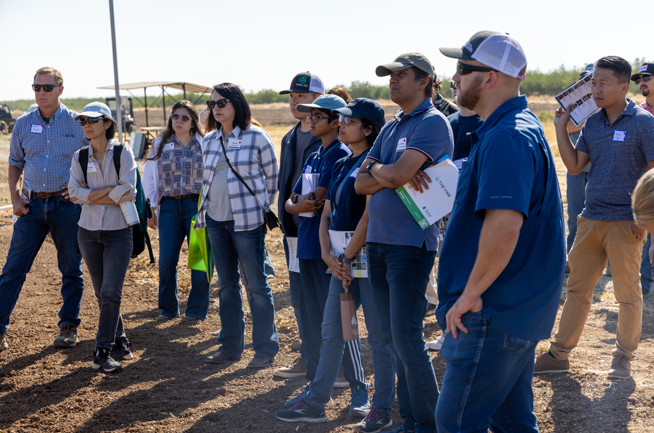By Alli Sweigard, VISTA F3 Communications Coordinator
On September 17th, we hosted our first Field Day at the UC Merced Experimental Smart Farm. The event brought together the UC Merced community, industry partners, and farmers for a day focused on agricultural technology and innovation.
Josh Viers, Interdisciplinary Research and Strategic Initiatives opened the event by welcoming attendees and sharing UC Merced’s unique journey in agriculture. He highlighted milestones like the first ag tech fair in 2016, major research grants, and UC Merced’s designation as part of the Agricultural Experiment Station in 2022, emphasizing the power of collaboration and thanking the community for its continued support.
He noted that while UC Merced was never intended to be an agricultural school and still does not have a formal ag department or major, the campus has built strength by drawing on expertise across engineering, life and environmental sciences, public health, and other fields.
“We didn’t have a school of agriculture. We didn’t even have agricultural engineering,” said Josh Viers.
“But we knew that we could do engineering for ag. We knew that we could bring in our colleagues from Life and Environmental Sciences. We knew we could bring in expertise from public health and otherwise.”
“In fact, we could be a little bit different — we could be of today’s demands in terms of the needs of knowledge creation and data-driven decision making.”
Attendees participated in on-farm demonstrations, indoor presentations, and a panel discussion addressing challenges and opportunities in agriculture.
The morning featured outdoor demonstrations of innovative technologies designed to improve farming practices and operations. Participants had the opportunity to observe these tools in action and engage directly with company representatives to learn more about their applications.
Demonstrations included Spornado Inc.’s Disease Alert System, Aigen’s autonomous agricultural robotics, SENSEEN’s data-driven farm management solutions, and Bonsai Robotics’ robotic technologies for farm operations.
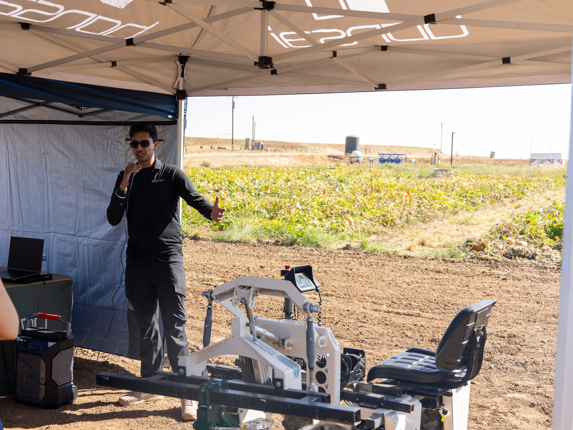
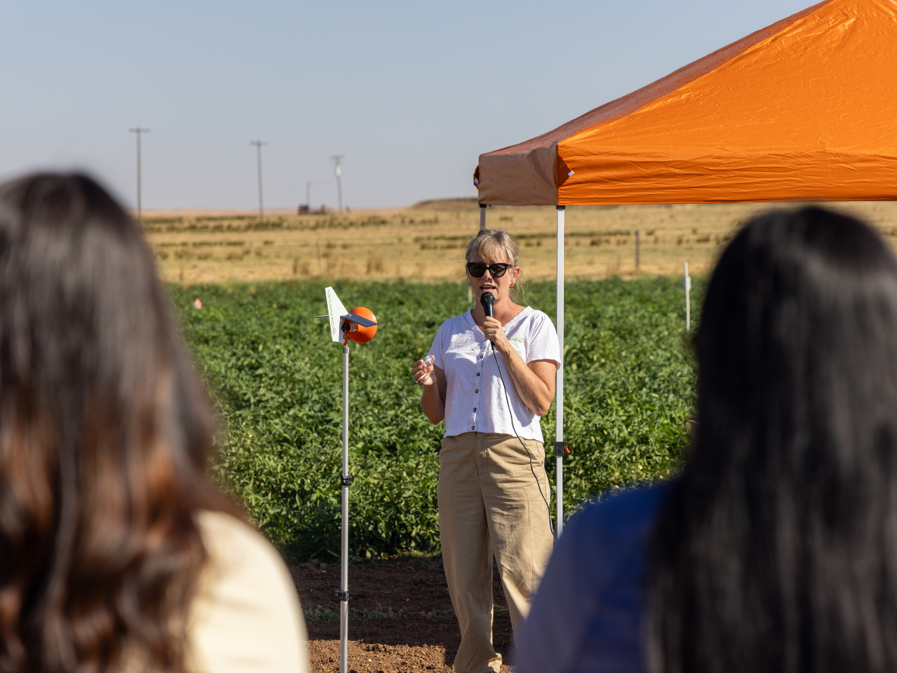
Presenters included V-Grid, Almondry, and Good Agriculture, each sharing practical solutions for improving efficiency and sustainability across the industry. In addition to the presentations, several organizations contributed to the event by tabling and engaging with participants, including the Merced Farm Bureau, F3 Innovate, American Pistachio Growers, Merced College AgTEC, and F3 Local.
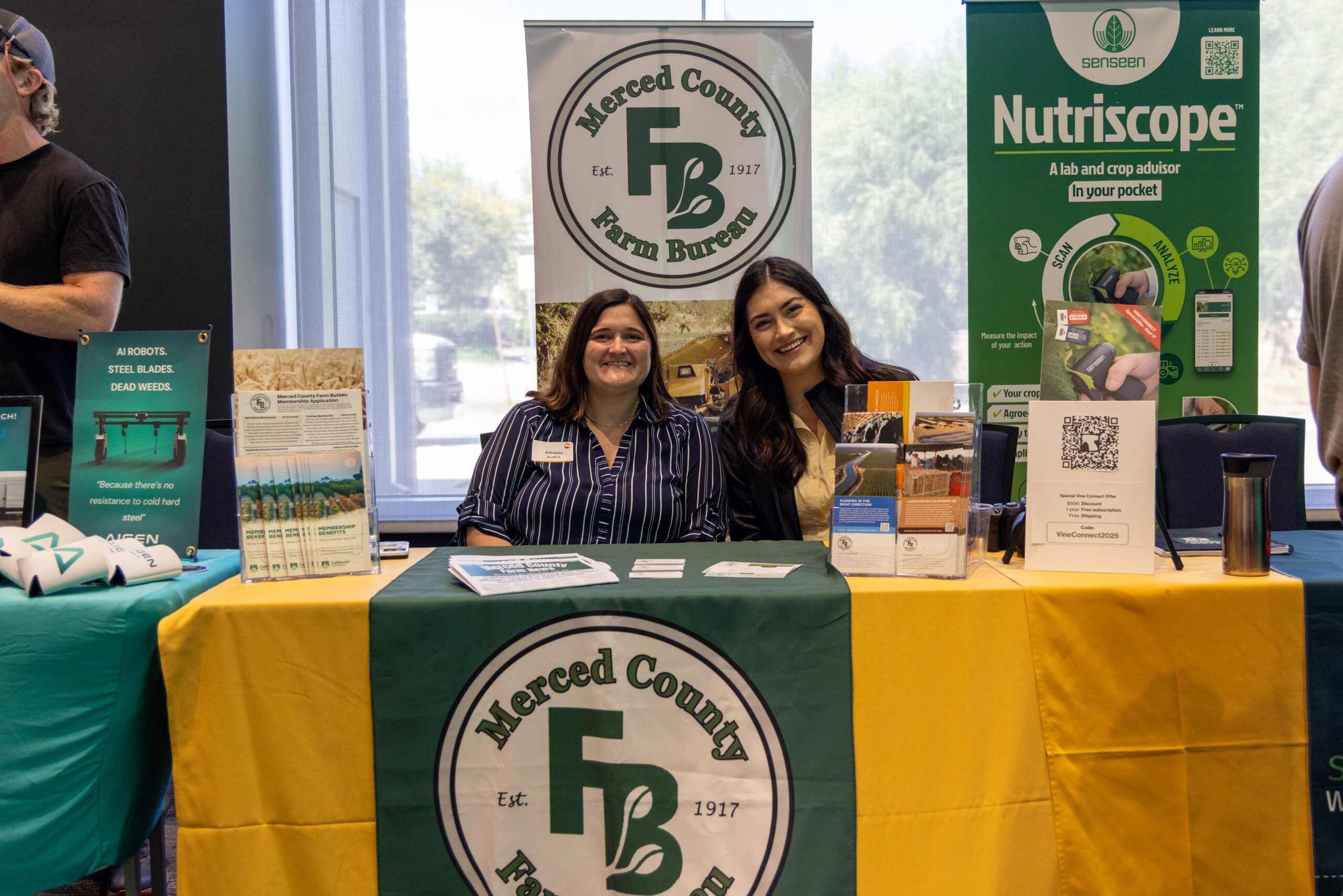
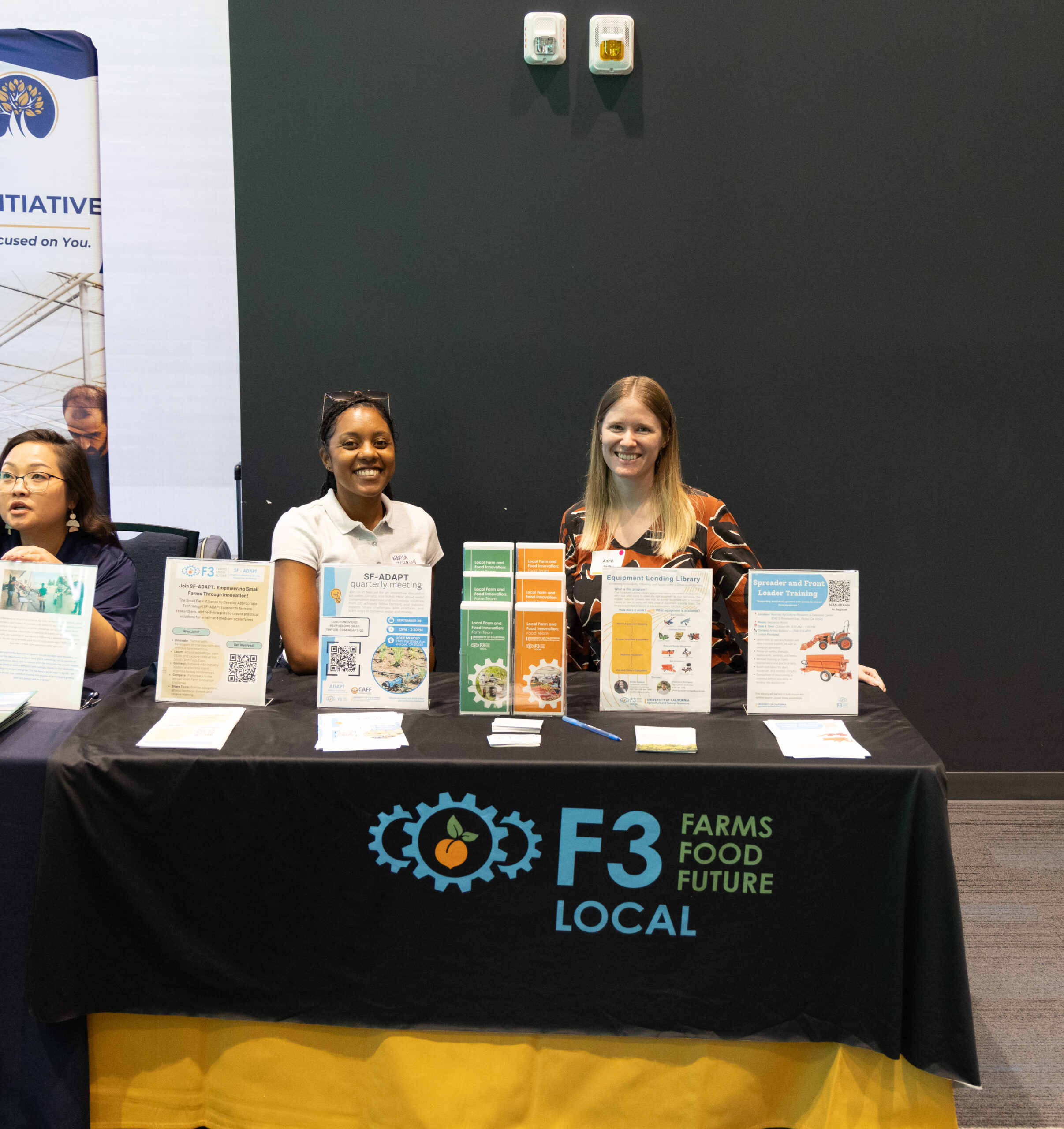
The event concluded with a lunch panel discussion on agricultural waste management and innovation, bringing together diverse perspectives from across the sector.
Panelists included Ashley Bandoni, PCA/CCA, Family Farmer, and Board Member of the Merced County Farm Bureau; Taylor Heisley-Cook, CEO of The Hurd Co.; Jason Inoff, COO of Glanris; Roger Isom, CEO of the Western Tree Nut Association; Dr. Rebecca Ryals, Professor and Presidential Chair of Climate Change Education at UC Merced; and Samir Sheikh, CEO of the San Joaquin Valley Air Board. The discussion was moderated by Micki Seibel, Operating Partner at Farmhand Ventures, with support from Hannah Johnson of UCANR.
The conversation highlighted the ongoing transition from reliance on biomass plants to open burning in the San Joaquin Valley, noting a dramatic 97–98% reduction in open burning—from one million tons per year down to just 28,000 tons. While millions in grant funding has been directed toward alternatives, panelists emphasized that an additional $100 million will be needed to accelerate progress.
Potential solutions such as biochar production, renewable diesel, and community-scale composting were explored, though each faces hurdles ranging from lack of capital and regulatory barriers to environmental justice concerns.
Panelists agreed that no single solution will suffice; instead, a menu of approaches must be pursued, coupled with stronger coordination at the state and federal levels. Funding support for pilot projects in the Central Valley was underscored as critical for incentivizing alternatives and driving innovation.
Reflecting on the value of the dialogue, Hannah Johnson remarked, “It is amazing to me to sit in the audience and see growers that are saying this is a problem, to see companies that say we have a solution to this problem, a researcher that is focused on these solutions and the end product, and then a regulator that is saying, we want to fast track this.”
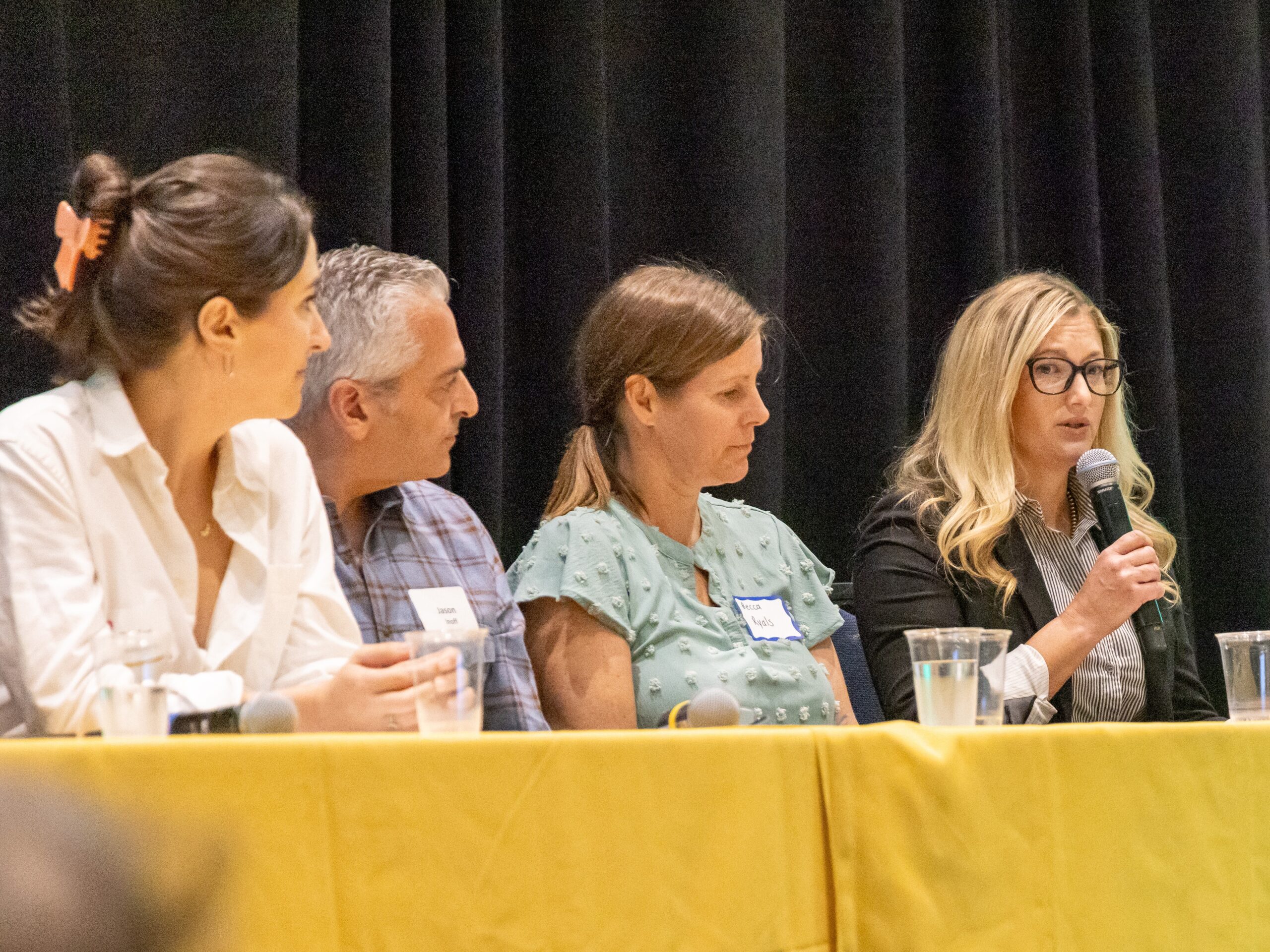
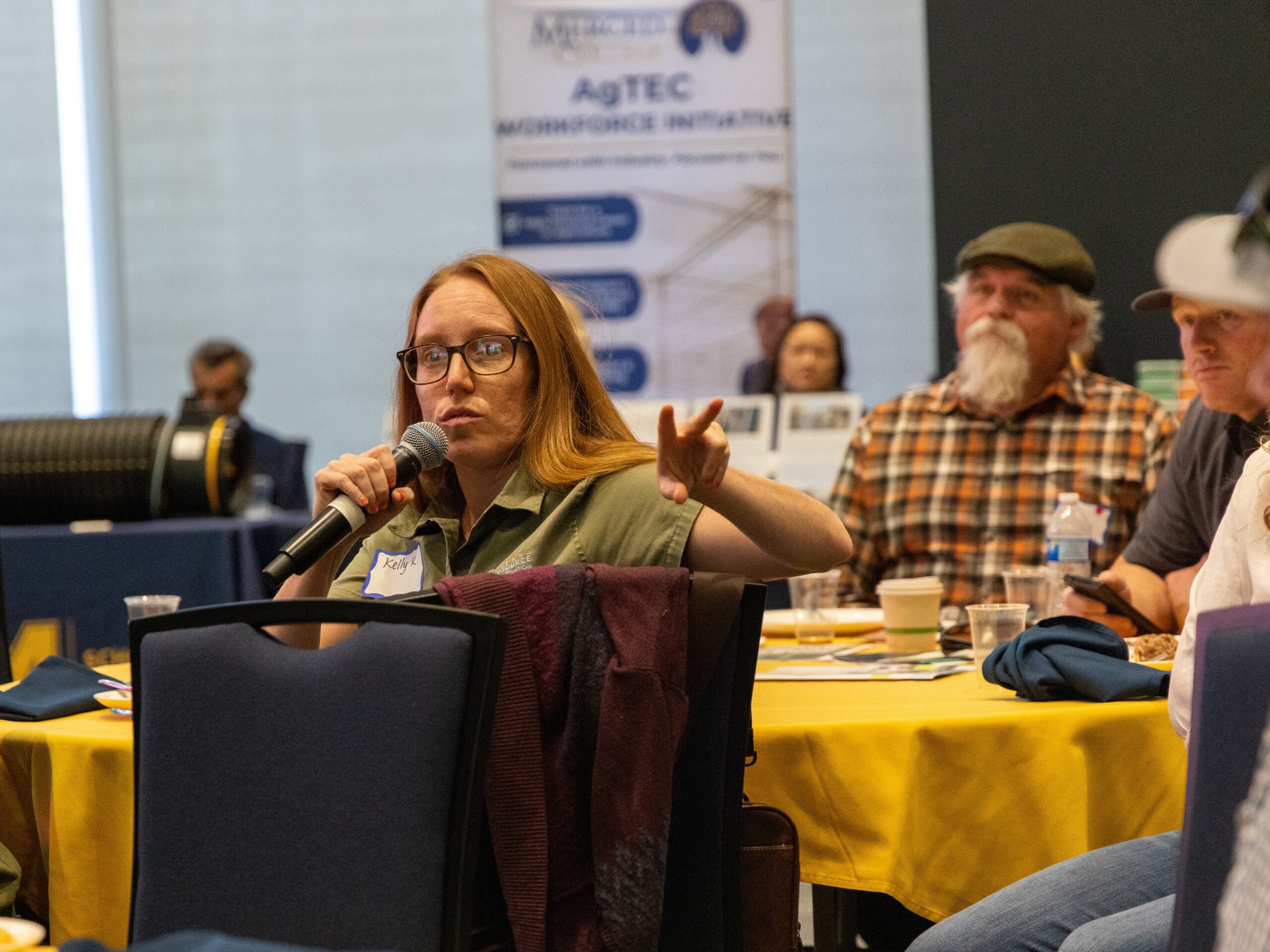
We would like to thank everyone who contributed to making this event possible, including the VISTA team for their planning and coordination, UCANR Innovate and Farmhand Ventures for their partnership and support, all demo companies, presenters, and tabling participants, as well as our panelists for generously sharing their knowledge and experience. The Field Day highlighted the importance of bringing together researchers, companies, and farmers to address the needs of our region and support the future of agriculture.

